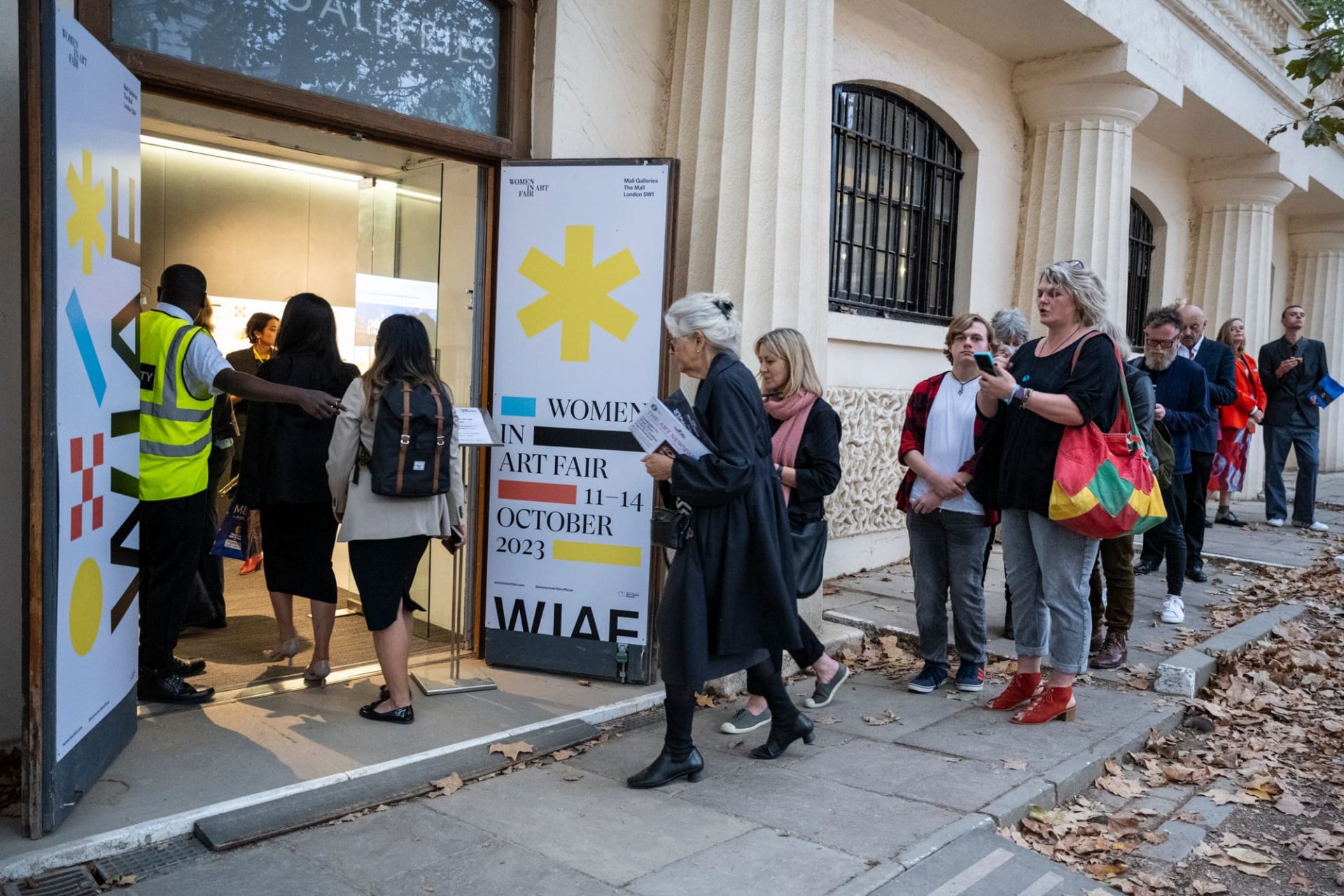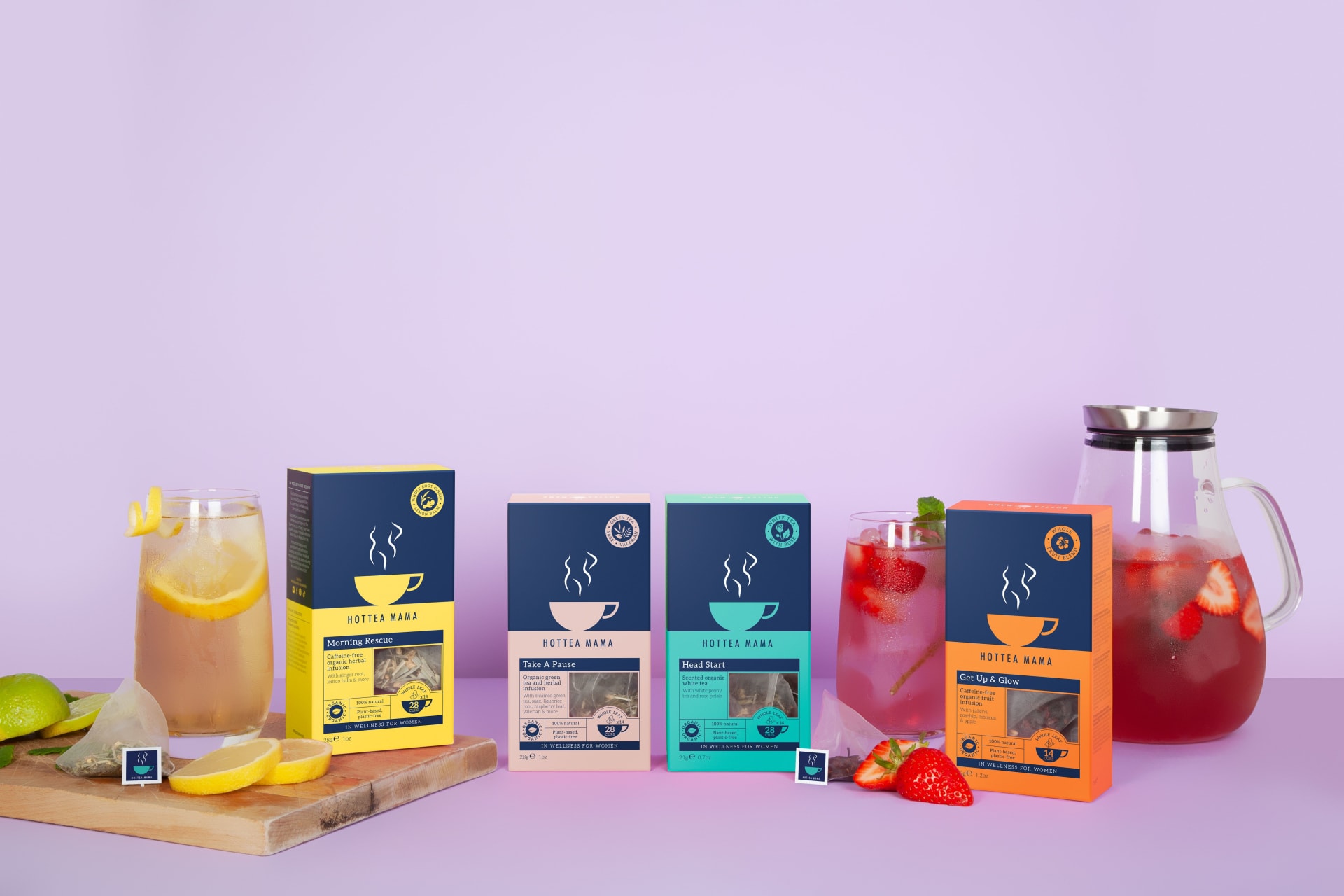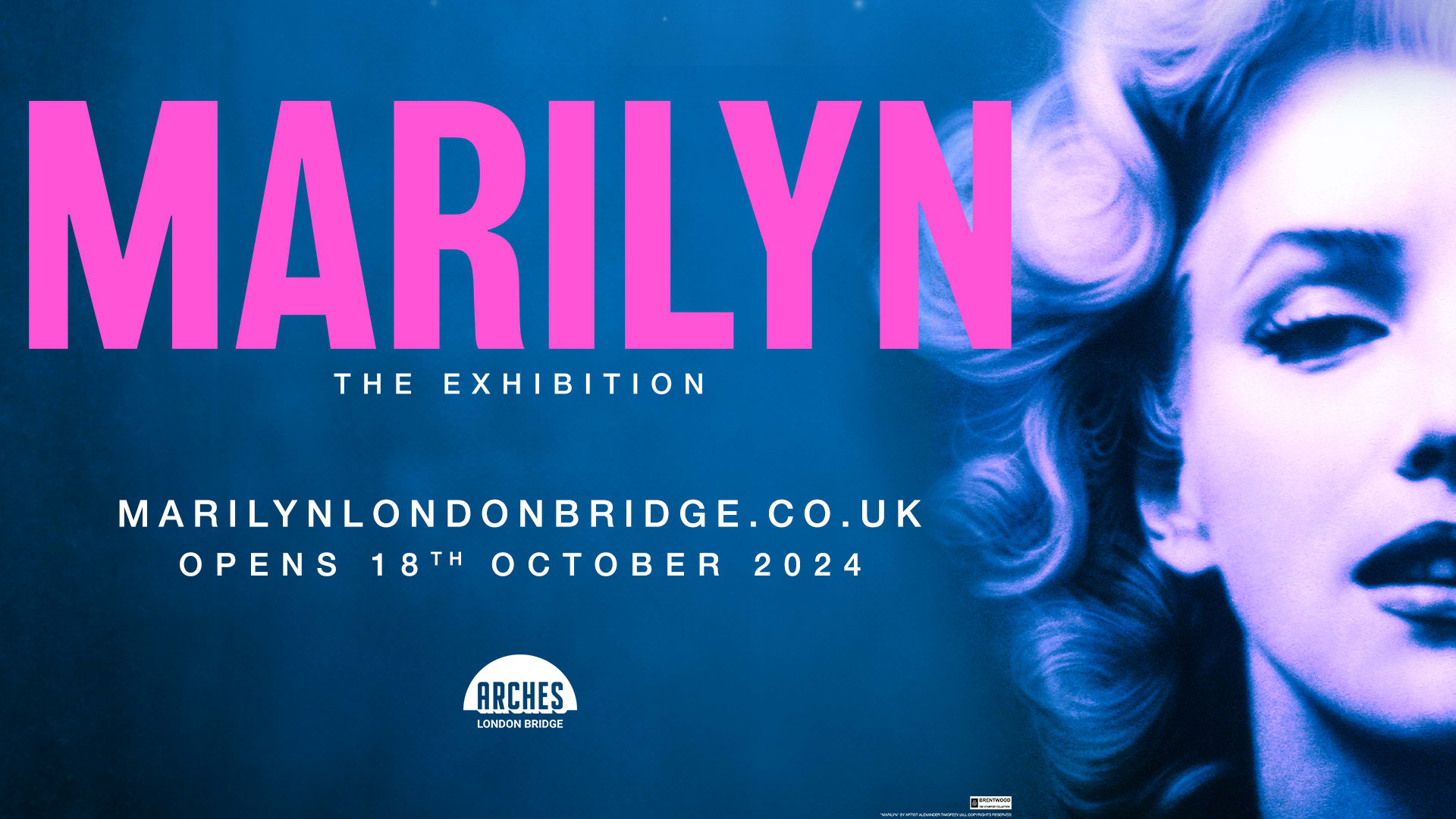The inaugural Women in Art Fair took place last October at Mall Galleries, London with a mission to create a platform for female artists, curators and gallerists. All three spaces at the gallery were occupied and the East Gallery was given over to a curated exhibition titled Unnatural Women, curated by artist and editor Rowena Easton and featuring celebrated names such as Paula Rego and Jean Cooke alongside established and mid-career artists. Director, Jacqueline Harvey, is an author, educator, journalist, broadcaster and award-winning business woman. She’s a woman with a mission and I wanted to learn more.
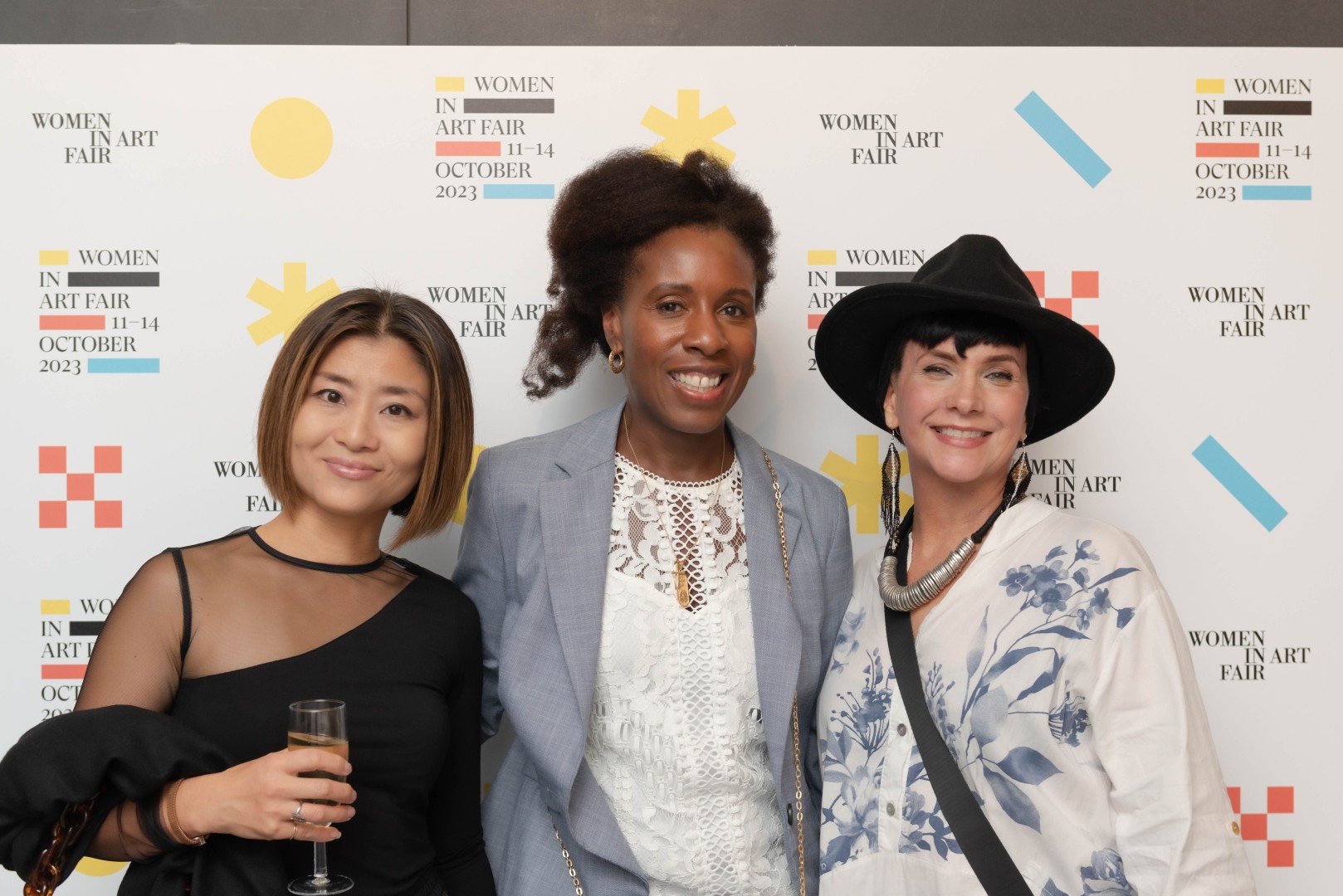
Jacqueline Harvey Fair Director with artists
What led you to launch the Women in Art Fair?
I was working at Art Strategics in Mayfair, and we were being bombarded by women artists. In 2017 we did an open call – it wasn't specifically just for women – and I think about 90% of the applicants were women artists. We decided to go down this route as a business because we love art fairs, we love the energy, the buzz, the opportunity business-wise and creatively, it’s just great.
We thought, let’s see if we can deal with the problems women artists and gallerists face with getting work shown; with the issues that are within the industry. [My background was in] health and wellbeing and I was really surprised by the inequality within the art world. It tends to be a bit like the Wild West; there’s very little regulation and there’s very little monitoring of staff and equality, diversity, and issues relating to that. Female artists have a harder time in getting representation, the price of the artwork is nowhere near equal, the volume that is sold from a billion-pound industry is about 2% of the total sales. None of that is right and we just felt we wanted to do something to help change that.
Also it was important to us to provide opportunities for artists and galleries, so whilst art fairs tend to be one or the other, we're a bit of a hybrid because we have galleries and artists.
And how the response to the Fair?
Oh, it was very well received. We'd been working with the Arts Council to go through all the business aspects, and we got an award from them in 2022. We worked with those creative experts and businesses to make sure what we wanted to do was going to be on a solid foundation. It was a massive learning curve, so we tried to sort of take on as much advice as possible and work with consultants and people with experience to learn what to do.
So, it was well received critically but there were some people who questioned whether or not we really needed to do this. I just laughed at that; look at the figures.
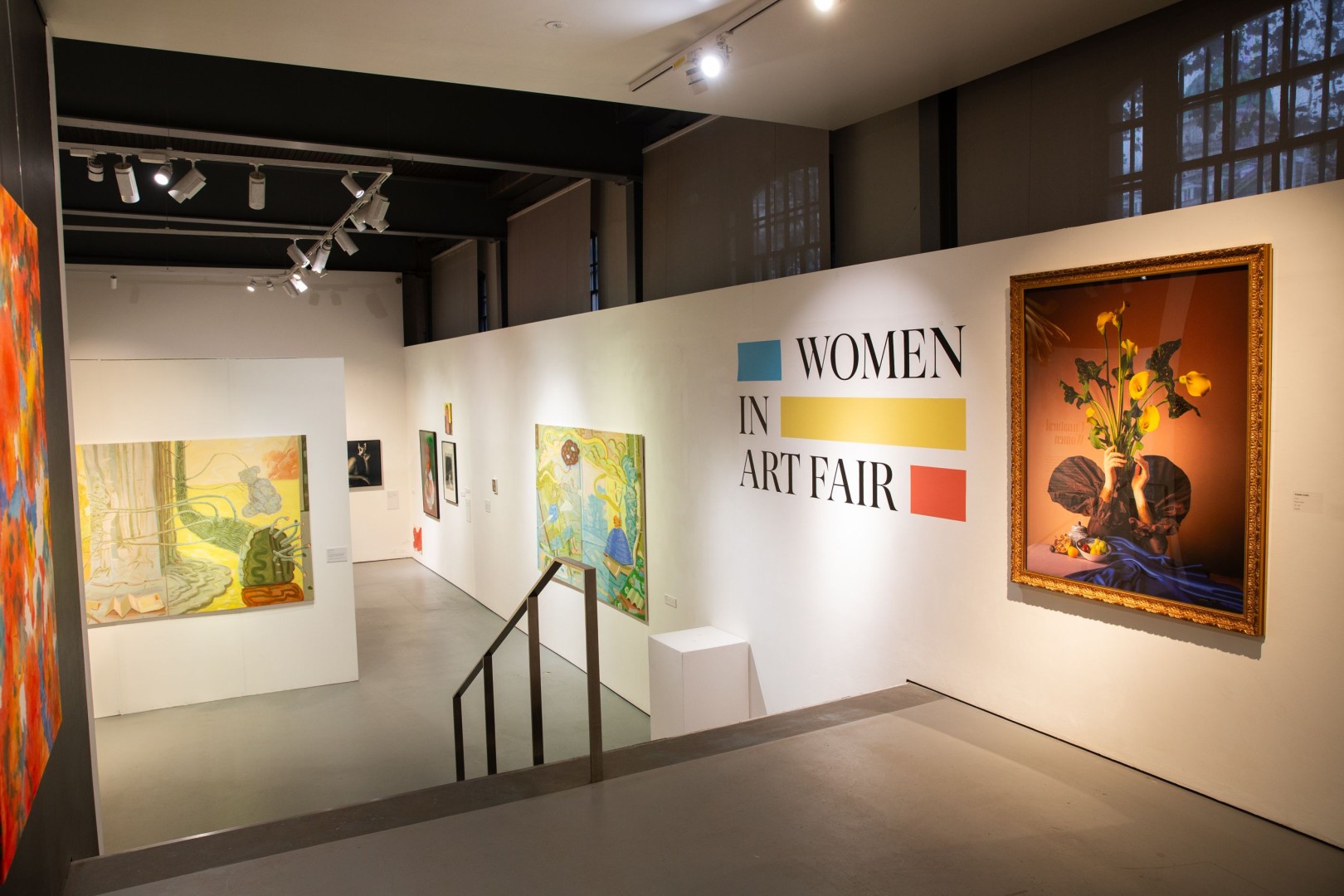
Credit: Piers Allardyce
That’s so surprising to hear. You mean people in the art industry?
Yeah, within the industry. One of the things that was said was ‘what would we feel about a male-focused art fair’ and I said that is what is going on now. Just the mere fact that for the first year ever in 2023 The Royal Academy has featured a female (Marina Abramovic) is a disgrace. How can The Royal Academy of Art say that in all its centuries of existence 2023 is the first time they thought a female artist was good enough.
It feels like art would be one of the more inclusive industries.
Yes, that’s right it should be but when you look at the figures it’s not. So it’s a long-term plan for us and we've decided to make this our business within art for the next 10 years or so. We hope we can build that community and business hub where people and collectors can come and find the best female artists or see a variety of artists. Younger people can come and learn. Younger women artists coming through will be encouraged to express their creativity and know that they can earn a living.
How do you go about selecting your artists?
The selection committee is made up for the next open call which will start from the end of January 2024.
I understand the theme in 2023 was Unnatural Women. I’m interested to know how that was explored.
I come from a sociological background, my degree is in philosophy and sociology. There’s been this idea, culturally back to medieval times, that women’s physical presence and their mental states have been defined by men as being unnatural in some way. The exhibition was curated by arts journalist and curator Rowena Easton, and this was a theme Rowena wanted to explore. Given that women have the ability to create life, why are we the ones being labelled as unnatural by the patriarchy? There are certain artists, like Paula Rego, who has explored through her work on abortion how even the process of giving birth, or not giving birth, can be seen to be unnatural. Rowena collated a number of artists that she felt exemplified this.
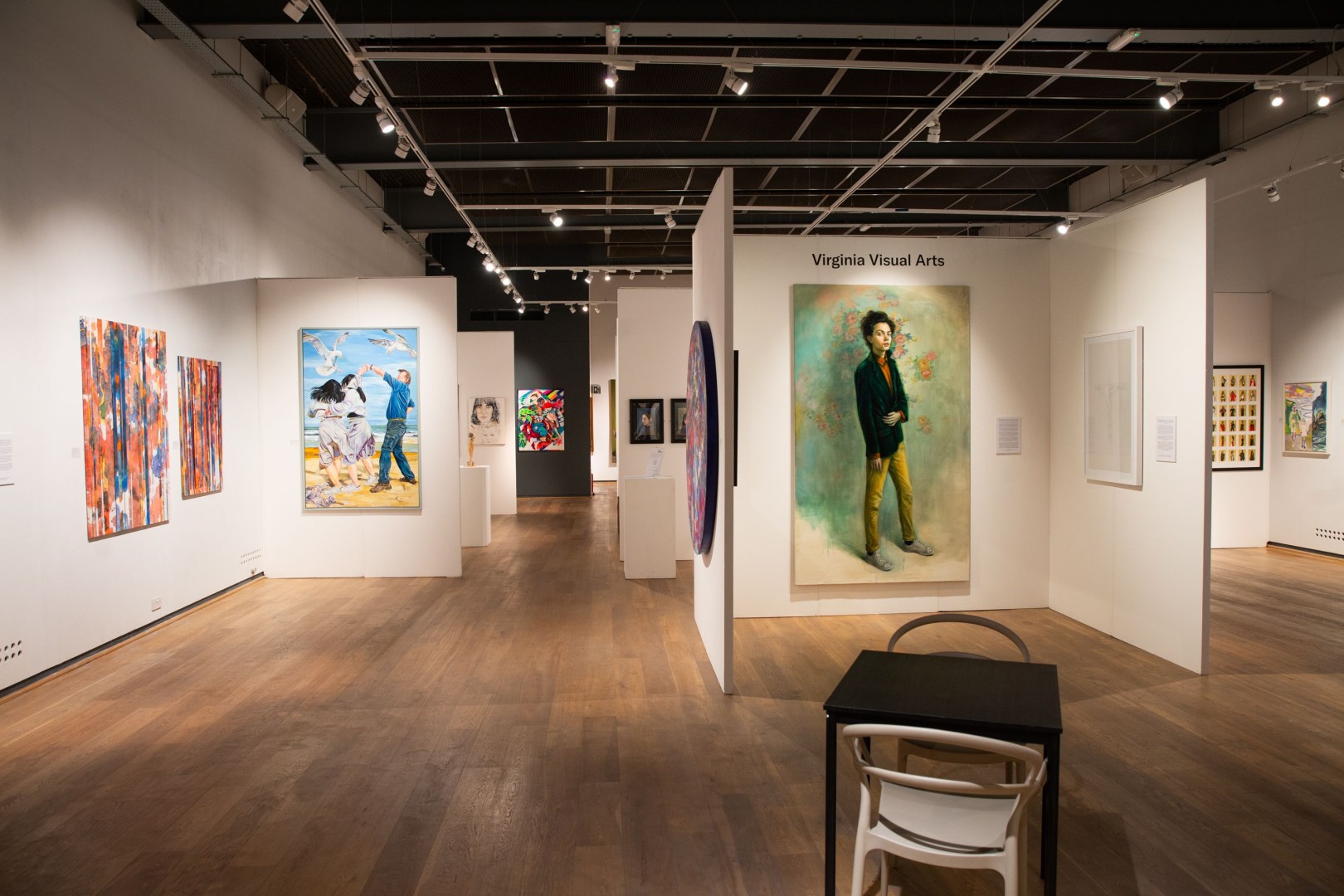
Credit: Piers Allardyce
Have you got any thoughts about next year’s theme?
Not yet. We're looking at what’s going on in the world at the moment. There’s a lot that might need some form of expression.
Finally, I asked what led you to launch the Fair, but – on a more personal level – why was now the right time for you?
In my career I’ve worked with several businesses and there’s a point when a critical number of circumstances come together. The first critical issue is I’m older, I’m in my mid-fifties. Number two, I’ve been a free wheeler – or self-employed – all my life, so I create what I want: I work for myself, I only work with people who I want to work with, I only do what I want.
I’ve worked in health, fitness and well-being. I had a company before, and I still have that company. I come from a family where I was one of 10 children. My mum was divorced. She was a union rep, and she was the person who taught me to say no. My business partner is different; younger, more affluent, but wanting to do something with her life. We're both focused on creating change. My background is sociology and philosophy, so I’ve always been aware of social and societal issues, I went to a creative university, Goldsmiths, and I’ve worked in the arts. I’m fortunate to be around an abundance people that will say yes to something and are used to being on the edge. All those factors came together.

